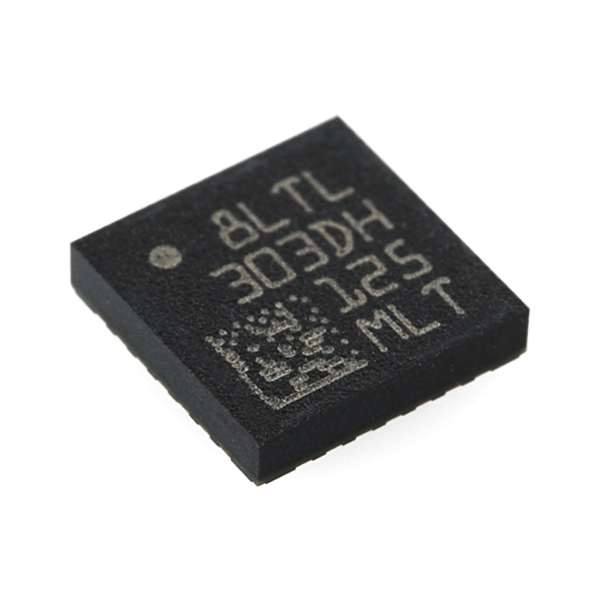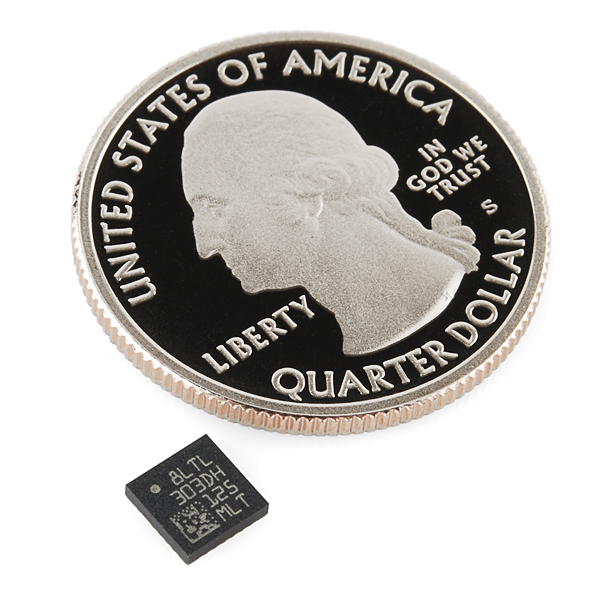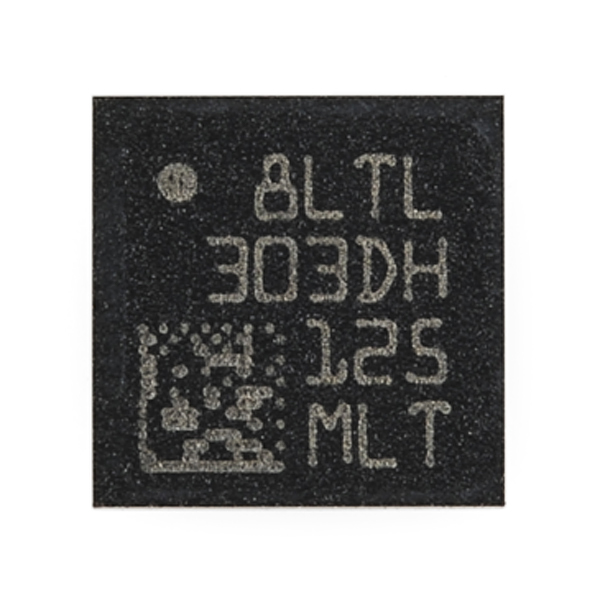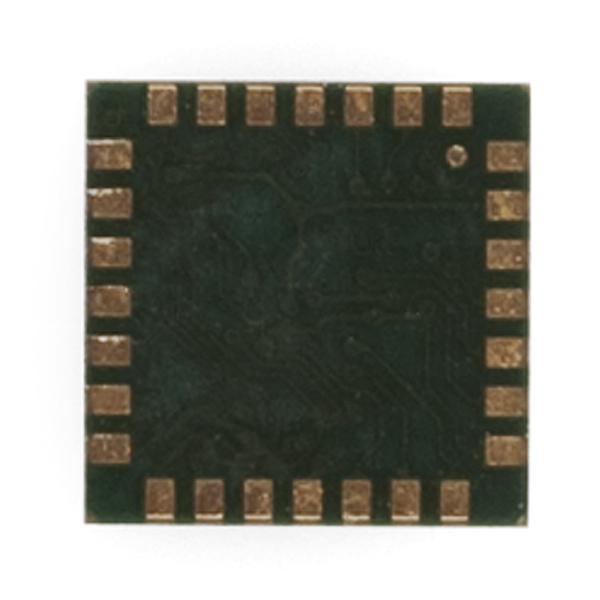LSM303DLMTR - Tilt Compensated Compass
Replacement: None at this time. We are no longer carrying the LSM303DLMTR in our catalog. This page is for reference only.
The LSM303DLMTR is a triple axis MEMS accelerometer combined with a triple axis magnetic sensor. This arrangement allows for the LSM303 to perform 6D orientation detection. You can communicate with the sensor using a simple I2C interface. Analog supply voltage should be between 2.16 to 3.6VDC.
Check below for a breakout board!
- +- 2/4/8 g dynamically selectable full-scale
- +-1.3 to +- 8.1 Gauss magnetic field full-scale
- Digital supply voltage IOs: 1.8 V
- 16-bit data out
- I2C interface
- Embedded self-test
LSM303DLMTR - Tilt Compensated Compass Product Help and Resources
Core Skill: Soldering
This skill defines how difficult the soldering is on a particular product. It might be a couple simple solder joints, or require special reflow tools.
Skill Level: Competent - You will encounter surface mount components and basic SMD soldering techniques are required.
See all skill levels
Core Skill: Programming
If a board needs code or communicates somehow, you're going to need to know how to program or interface with it. The programming skill is all about communication and code.
Skill Level: Competent - The toolchain for programming is a bit more complex and will examples may not be explicitly provided for you. You will be required to have a fundamental knowledge of programming and be required to provide your own code. You may need to modify existing libraries or code to work with your specific hardware. Sensor and hardware interfaces will be SPI or I2C.
See all skill levels
Core Skill: Electrical Prototyping
If it requires power, you need to know how much, what all the pins do, and how to hook it up. You may need to reference datasheets, schematics, and know the ins and outs of electronics.
Skill Level: Competent - You will be required to reference a datasheet or schematic to know how to use a component. Your knowledge of a datasheet will only require basic features like power requirements, pinouts, or communications type. Also, you may need a power supply that?s greater than 12V or more than 1A worth of current.
See all skill levels
Comments
Looking for answers to technical questions?
We welcome your comments and suggestions below. However, if you are looking for solutions to technical questions please see our Technical Assistance page.
Customer Reviews
No reviews yet.





Pretty quarter.
This one is the LGA28 5x5 packge(footprint), am I right?
Oh wow I remember when tilt compensated compasses were $150+
And this was like 3 years ago! Damn.
This is a great price for both a magnetometer and accelerometer on the same die. But note that unlike more expensive compasses that do everything for you, this one gives you the raw values and requires you to do the math yourself (which isn't difficult). But since you'll typically be hooking it to a microcontroller with those capabilities anyway, it's a great way to do a bit of work on the software side to save a lot of cash on the hardware side.
Can we get a datasheet for the DLMTR specifically? The one linked is still the LSM303DLM and I'm trying to figure out the difference between them.
From my reading of the datasheet only apparent difference is that the "TR" stands for "tape and reel" rather than the chips being delivered in trays. The only results according to Adobe's find command for the characters or "LSM303DLMTR" or "DLMTR" appear together in the document is within Table 1 which is about order packaging.